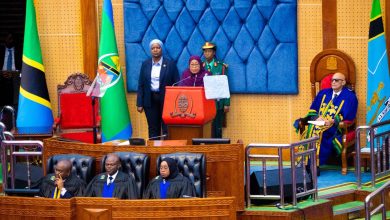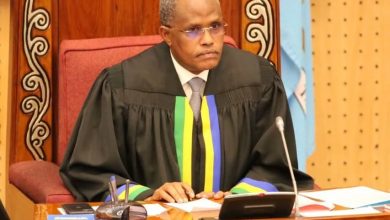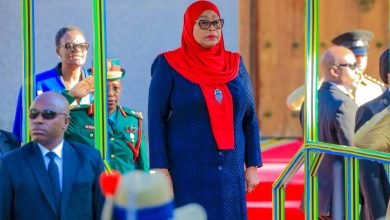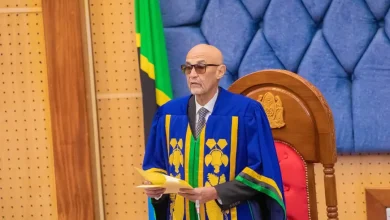Journalist safety highlighted ahead of 2025 General Election

DAR ES SALAAM: WITH the General Election edging ever closer, the focus is turning toward the safety of journalists and the media’s vital role in fostering informed, peaceful and cohesive public discourse during the campaign period.
At the recent National Dialogue on the Safety and Security of Journalists held in Dar es Salaam, key institutions — including UNESCO, the Tanzania Human Rights Defenders Coalition (THRDC) and the Union of Tanzania Press Clubs (UTPC), gathered to deliberate on safeguarding media freedom and promoting responsible journalism during the electoral period.
The event underscored a critical point: Journalists serve not only as sources of information but also as contributors to national stability.
By delivering balanced coverage and holding public figures accountable, the media can help counter misinformation and reduce political tensions, particularly during heightened electoral seasons.
However, this role often comes with risks, including intimidation, harassment and violence. Inspector General of Police (IGP) Camillus Wambura assured the public that the Tanzania Police Force is fully prepared to maintain peace and security throughout the election process.
“Tanzania is safe and secure. The Police Force would like to assure citizens that peace and order will be maintained throughout and after the election process,” he said.
Addressing the issue of media safety, IGP Wambura emphasised that the protection of journalists is not only a matter of professional responsibility but also essential for the integrity of democratic processes.
“The safety of journalists is essential for democracy and the integrity of the electoral process,” he stated, calling on journalists to adhere to national laws and ethical standards to avoid potential conflicts with security agencies.
He also urged media owners to take active steps to support their staff by providing safety training and appropriate protective gear, including helmets and jackets, particularly for those covering politically sensitive or high-risk assignments.
ALSO READ: Beyond ballot: Peaceful politics amplified
“As we enter this sensitive electoral period, collaboration between media and security institutions is crucial. Journalists inform the public, and their safety must be treated with utmost seriousness,” he said.
IGP Wambura reiterated that police conduct must be aligned with Article 18 of the 1977 Constitution, which guarantees freedom of expression and the right to access information.
He issued instructions to police across the country to respect press freedom and protect journalists during election coverage, in line with President Samia Suluhu Hassan’s “4Rs” philosophy — Reconciliation, Resilience, Reforms and Rebuilding.
Journalists urged to uphold ethics
Nancy Angulo, Head of Communication and Information Programmes at UNESCO, representing Country Director Michel Toto, described journalism as the backbone of democracy.
“Silencing a journalist is silencing society,” she said, noting that democratic engagement depends on a free and secure press. She reaffirmed UNESCO’s commitment to protecting journalists under the UN Plan of Action on the Safety of Journalists and the Issue of Impunity.
“A safe journalist means a safe society and a stronger democracy,” Angulo added, commending UTPC, THRDC and International Media Support (IMS) for their role in facilitating the dialogue. UTPC Executive Director Kenneth Simbaya shared that, in collaboration with IMS and police authorities, 56 dialogue sessions have been conducted across 14 regions to strengthen cooperation between journalists, law enforcement and other stakeholders.
“We believe this collaboration will greatly enhance journalist safety, especially during the election season,” Simbaya said.
THRDC National Coordinator Advocate Onesmo Ole Ngurumwa reminded journalists of their responsibility to maintain neutrality and professionalism.
“Journalists are key stakeholders in the electoral process and deserve full protection. But wearing party attire or neglecting ethics puts your safety at risk,” he cautioned.
Deputy Commissioner of Police (DCP) David Misime also reaffirmed law enforcement’s commitment to protecting journalists and civil society actors throughout the electoral period. Fausta Musokwa, Project Manager at IMS Tanzania, called on journalists to exercise restraint and integrity in their work, particularly during politically charged periods.
“Media professionals should avoid sensationalism and resist spreading misinformation, which can heighten political tensions,” she said.
Editors and media experts at the dialogue noted that during elections, the press plays an active role in promoting peace and stability, not simply reporting on events.
They emphasised the need for accurate reporting, avoidance of inflammatory language, and fair coverage of all political parties and candidates.
The importance of public service broadcasting was also highlighted, with suggestions including radio talk shows, voter education campaigns, and balanced televised debates to encourage tolerance and prevent the spread of disinformation.
By verifying facts, educating citizens, and providing platforms for informed discussion, the media can help reduce misunderstandings and prevent conflict during high-stake political moments.
Collective responsibility for media safety
The dialogue concluded with a shared message: the safety of journalists is a collective responsibility. Government bodies, security institutions, media houses and civil society must work together to ensure that journalists can carry out their duties without fear or interference.
As election campaigns intensify, the overarching message was clear — a free, safe and ethical media remains fundamental to a peaceful electoral process. As one participant summed up, “When journalists are safe, democracy thrives. But when journalists are silenced, society loses its voice.”





